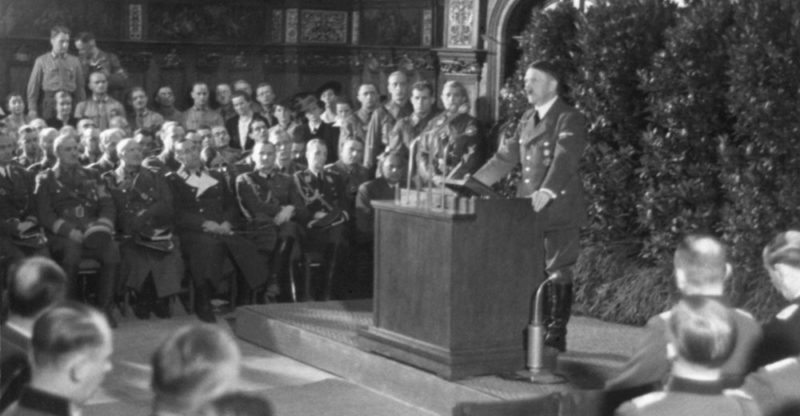We explain what authoritarianism is and what are the main objectives of this regime. Also, its characteristics, examples and more.
What is authoritarianism?
Authoritarianism is a political regime that abuses its authority and imposes itself on power without a consensus on the part of the people . This type of system may be under the command of a tyrant, an absolute monarch, military governments , an elite leader or a foreign economic power, which suppresses all human rights .
The authoritarian system is the opposite of a democracy . It resembles totalitarianism in that both abuse power and suppress human rights. However, it differs in that the authoritarian regime does not have such a developed ideology that defines it, but rather pursues the interests of a leader or minority who is in command.
Characteristics of authoritarianism

- The authoritarian regime lacks an official ideology, it only pursues the interests of a minority.
- The interests of a minority. The authoritarian regime lacks a strong official ideology and pursues the interests of a leader or minority economic sectors that have power and exercise political and economic control.
- Control of the media. It refers to the fact that both the press and any means of expression are controlled by the government in order to praise the figure of its leader, highlight his achievements and omit any negative criticism. The objective is to convince the population , through the reiteration of political propaganda.
- The promotion of terror. It refers to one of the main resources of the authoritarian system to perpetuate in power, suppressing any anti-government ideology or discourse through aggression and physical repression, even killing people who rise up.
- The abolition of the popular vote. It refers to the fact that the election of leaders does not take into account the consent of the citizens . There is only one political party that is in charge of promoting the legitimacy of a government and that restricts different political opinions and ideologies.
- Strong military presence. It refers to the intense military activity that takes place in the streets, in educational institutions and in hospitals, in order to exercise control through the use of force and to instill fear among citizens. On certain occasions, the army intervenes in the political process and decisions.
- Arbitrary manipulation of the constitution. It refers to the modifications and changes of the constitution (the fundamental law of a State ) with the aim of perpetuating oneself in power. It does not take into account the priorities of the people and nor human rights.
Examples of authoritarian regimes
Some examples of authoritarian systems are:
- The military regime of Augusto Pinochet in Chile (1973-1990).
- The government of Francisco Franco in Spain (1939-1959).
- The dictatorship in North Korea started in 1984 that continues since 2011 with Kim Jong-un.
- The dictatorship started in Zimbabwe in 1980 that continues since 2017 with Emmerson Mnangagwa.
- The Communism began in Cuba in 1956 which continues from 2019 Miguel Diaz-Canel with.
- The regime of the People's Republic of China started in 1921 that continues since 2013 with Xi Jinping.
Totalitarianism
 Totalitarianism is a system of government whose ideology is very strong and severely restricts the freedom of all individuals, exercising absolute power. It does not accept a pluralistic image, as sometimes happens in authoritarianism.
Totalitarianism is a system of government whose ideology is very strong and severely restricts the freedom of all individuals, exercising absolute power. It does not accept a pluralistic image, as sometimes happens in authoritarianism.It is a regime that emerged as a political system in the 20th century with the totalitarian government of Benito Musilini in Italy (1922-1943). It was later adopted under the Nazism of Adolf Hitler in Germany and the Communism of Fidel Castro in Cuba.
The above content published at Collaborative Research Group is for informational and educational purposes only and has been developed by referring reliable sources and recommendations from technology experts. We do not have any contact with official entities nor do we intend to replace the information that they emit.
She has pursued her studies in The United States, where she has graduated in Business and Economics and is currently finishing her Master studies in International Economics and Finance. Miss. Amputee is fluent in three languages: English, Spanish and Russian and has elementary knowledge of French and Italian. She love exploring how Collaborative Research Group can become the best tool to achieve the (necessary) educational change. .
Leave a reply
Your email address will not be published. Required fields are marked *Recent post

Sport: What Is It, Types, Risks, Features, Characteristics and Examples

Dogs: Emergence, Features, Characteristics, Feeding and Breeds

Story: Definition, Elements, Structure, Features and Characteristics

